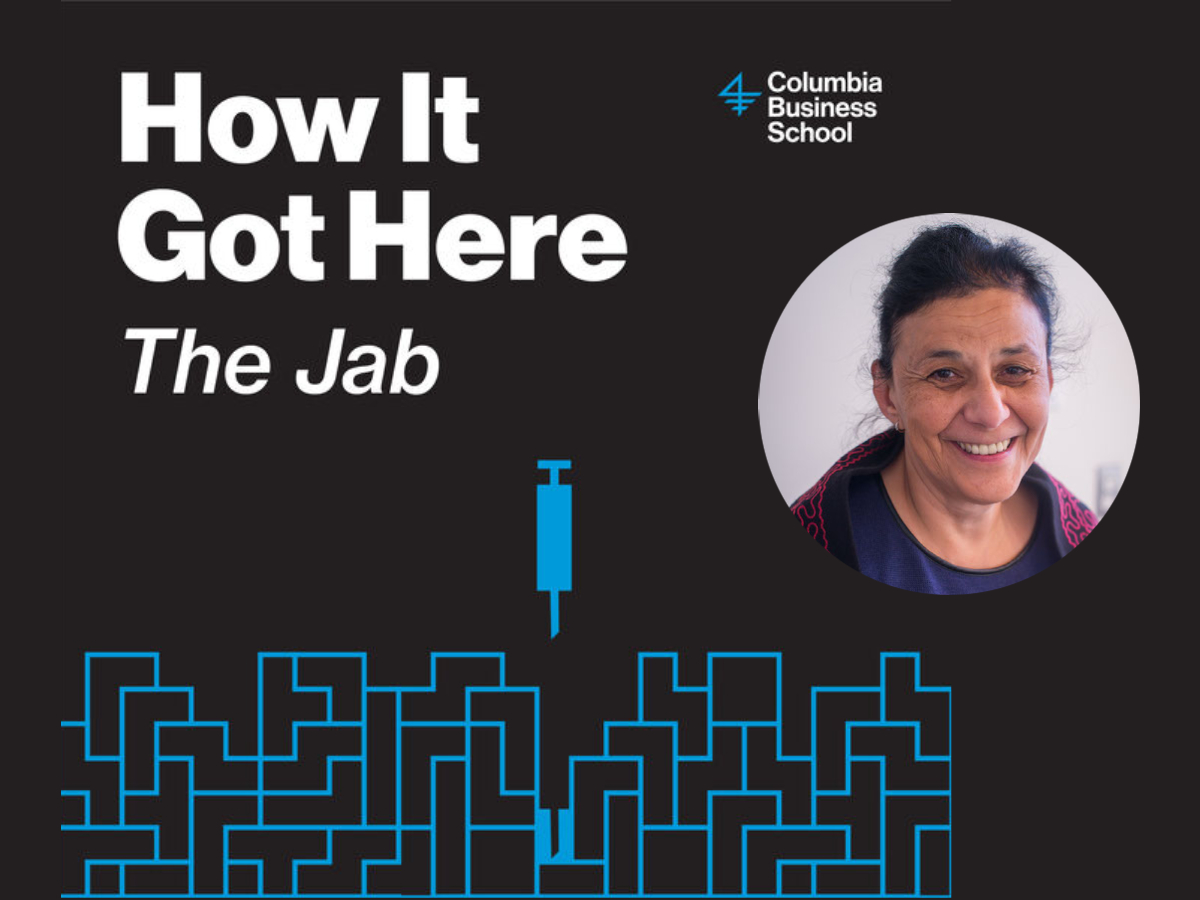“In the HIV response, some of the principles that we hold dear is this idea that you have to bring to the table the people who are going to be the recipients of services,” said Wafaa El-Sadr, ICAP at Columbia University, leveraging her decades of experience and success in tackling public health crises, including HIV, to the response on COVID-19. “They [service recipients] have to be there from day one designing and shaping the programs. That is a critical lesson we have to keep in mind with the COVID-19 vaccination,” El-Sadr said, explaining the importance of effectively and deliberately engaging communities for a successful vaccination program. She spoke on How We Got Here: The Jab, a three-part podcast series developed by the Columbia Business School’s Deming Center.
The podcast adeptly explores the supply chain journey of the COVID-19 vaccines from creation to distribution – the establishing of a manufacturing process, procuring materials, creating and getting the vaccines to people. “What is really interesting are the questions and conversations that come out around access to vaccines, the ways that economic nationalism is coming into play, and how we address equity around vaccine distribution, both in the US and globally,” said Abigail Talcott-Schlaifer, associate director at the Columbia Business School’s Deming Center, and producer of the podcast.
According to Talcott-Schlaifer, How We Got Here came out of an initiative called the Supply Chain Innovation Network, SCIN. SCIN brings together top industry leaders and academics to tackle the most pressing challenges and opportunities in the supply chain by sharing knowledge through best practice and case study presentations, small group discussions, and peer-to-peer learning.
“Given the world’s collective vested interest in the success of a vaccine, we thought that there was an incredible story to tell that picked up after the development of the vaccine science that focused on the massive manufacturing and logistical challenges of making enough vaccines to inoculate the world,” said Talcott-Schlaifer.
According to research data, more than 3.7 billion people have received vaccines. However, even though health experts have explained that effective vaccination is the next step in controlling the spread of COVID-19, vaccine hesitancy has become a considerable challenge. “The work continues,” said El-Sadr. “We need to think of new ways of reaching people and make the logistics as easy as possible for people who want to be vaccinated,” she said.
Details of the podcast and how to listen to the entire three-part series can be found here.
About ICAP
A major global health organization that has been improving public health in countries around the world for nearly two decades, ICAP works to transform the health of populations through innovation, science, and global collaboration. Based at Columbia Mailman School of Public Health, ICAP has projects in more than 30 countries, working side-by-side with ministries of health and local governmental, non-governmental, academic, and community partners to confront some of the world’s greatest health challenges. Through evidence-informed programs, meaningful research, tailored technical assistance, effective training and education programs, and rigorous surveillance to measure and evaluate the impact of public health interventions, ICAP aims to realize a global vision of healthy people, empowered communities, and thriving societies. Online at icap.columbia.edu
About the Deming Center
Located within Columbia Business School, the Deming Center promotes operational excellence in business through the development of research, best practices, and strategic planning.








